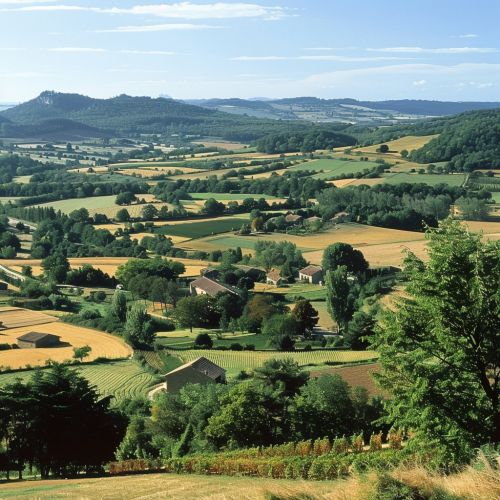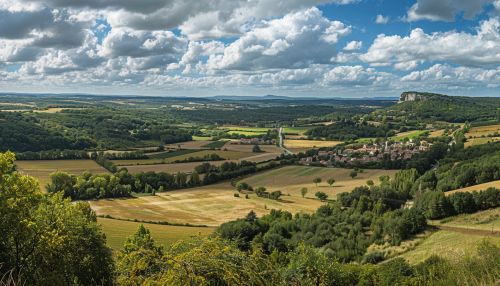French Republic
Geography
The French Republic, or France, is located in Western Europe, bordered by several countries including Belgium, Luxembourg, Germany, Switzerland, Italy, Spain, and Andorra. It also shares maritime borders with the United Kingdom. France's diverse geographical features range from the mountain ranges of the Alps in the southeast to the coastal plains of the north and west. The country's highest point is Mont Blanc, situated in the Alps and standing at 4,810 meters high.


History
The history of France is deep and complex, with human habitation dating back to the Paleolithic era. The Celts, a collection of Indo-European tribes, began to inhabit what is now France around 1,600 BC. The region was later conquered by the Roman Empire in 51 BC, beginning a period of Roman rule that would last until the 5th century AD.
In the Middle Ages, France emerged as a major European power under the rule of Charlemagne, who was crowned Emperor in 800 AD. The French Revolution, which began in 1789, marked a period of radical social and political upheaval in France that had a lasting impact on French history and more broadly on the world.
The 20th century was marked by two World Wars, in which France played a major role. The country was occupied by Nazi Germany during World War II but was liberated by the Allies in 1944. In the post-war era, France underwent a process of decolonization, losing many of its overseas territories.
Politics
France is a unitary semi-presidential republic, meaning the President of France is the head of state, while the Prime Minister is the head of government. The French political system is characterized by a strong executive branch, although the legislative and judicial branches have their own areas of responsibility and influence.
The French Parliament is bicameral, consisting of the lower house, the National Assembly, and the upper house, the Senate. Members of the National Assembly are elected directly by the people, while Senators are elected by an electoral college.
Economy
France has a mixed economy, combining extensive private enterprise with substantial state enterprise and government intervention. The government retains considerable influence over key segments of infrastructure sectors, with majority ownership of railway, electricity, aircraft, nuclear power and telecommunications.
France is the world's sixth largest economy by nominal GDP and ninth largest by purchasing power parity. It is also the third-largest economy in Europe, after Germany and the United Kingdom.
Culture
French culture is renowned for its influence on literature, art, music, and philosophy. France has produced many influential philosophers, such as René Descartes, Michel de Montaigne, and Voltaire, and it is the birthplace of several artistic and literary movements, including Impressionism and Symbolism.
France is also famous for its culinary tradition, with French cuisine being renowned worldwide. French wine and cheese are particularly celebrated.
